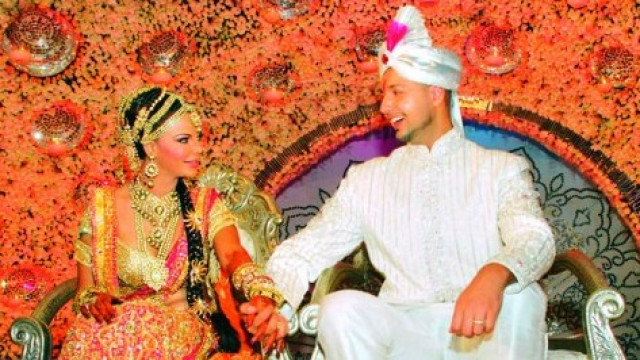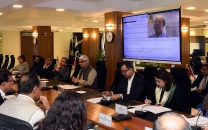Indian reality shows reveal a new society

Indian reality shows reveal a new society
Nowhere are these changes more visible than on the myriad reality TV shows. Programmes like “Emotional Atyachar” and “Sach Ka Samna” seem designed to shock the older generation in a country rooted in tradition but whose television schedules increasingly resemble the United States or other western countries. Previously, middle class Indians were glued to family dramas in tame daily soaps that usually revolved around the mother-in-law and daughter- in-law relationship -- a crucial yet often tension-filled one in Indian families.
Though these remain popular, most private channels now dedicate a nightly slot to reality shows that shock and titillate, featuring brash youngsters who flirt, argue and shamelessly self-promote. They are a force for social change, for better or for worse, and are drawing thousands of fans but making plenty of enemies along the way. “Negative emotions have always been around in India but were hidden or well-covered,” says Raghav Jha, a sociologist in Mumbai. “By bringing it in the open, reality shows have found a way to justify them and have made them acceptable,” said Jha, who works for a private media-research organisation.
“Reality shows are making millions of Indians believe that it is good to abuse, cool to misbehave, openly share their intimate encounters and justify any act by yelling,” he said. In the last five years, production companies have broadcast Indian versions of popular American and European shows, such as “American Idol”, “The Moment of Truth”, “Big Brother”, “Fear Factor” and “I’m a Celebrity ... Get Me Out of Here”. The genre was propelled to the forefront of Indian popular culture three years ago when Shilpa Shetty, a Bollywood star at home but relatively unknown to the wider world, entered Britain’s “Big Brother” house.
Shetty was the victim of racist bullying led by reality TV stalwart Jade Goody - who died of cancer 13 months ago - in a global scandal that led to responses from the British and Indian governments and the show’s suspension. Since then indigenous concepts and productions have been growing fast. In one, Rahul Mahajan, a 30-something from a political family who was arrested in a 2006 drug abuse case, chose a wife on the big-budget “Rahul Dulhaniya Lejayange after dating more than a dozen contestants on the show. In “Emotional Atyachar”, men and women watch their partners when attractive “honey traps” are sent round to flirt with them.
In a country where parents traditionally select and suggest partners for their children and extramarital sex is taboo, both shows were bound to run into criticism. In another show that challenged the rigid caste system, children from rich families in Mumbai try out slum-dwelling with the low-caste “untouchables” in scenes that would revolt conservative Hindus. The winner of the “Big Switch”, a month-long contest, took home prize money of $21,000 after charming viewers while shining shoes, selling books at traffic lights and doing other menial tasks normally reserved for the poor. Najma Heptulla, a member of parliament from the western state of Rajasthan, has campaigned against reality shows, some of which she says are vulgar and un-Indian.
She has particularly targeted the Indian version of “The Moment of Truth”, which sees participants asked questions such as whether they had slept with a prostitute or with a girl younger than their daughter. “We are not Britain and we are not America. We are in India,” said Heptulla, who has demanded the show be pulled off air. “We have different values and we have a different kind of living system. “And I think, looking at our society, it doesn’t match with it at all,” she told AFP. Whether it matches or not, the desire to take part is undeniable as aspiring actors and college students, many from remote villages and towns, rush for the chance to take part.
During one audition held in March on the outskirts of New Delhi for the show “Indian Idol”, there was a stampede when contestants fought to enter the audition venue, which left 12 wannabe contestants injured. Reality television actors agree that the shows might not be edifying viewing, but they defend their role. “These shows are having a wonderful impact because I think people are opening up. They’re moving along with the times,” says Revika Desai, a contestant for an upcoming show scheduled for April this year. Producers say reality TV is bound to stir objections given that the format is predicated on the idea of revealing personal and often embarrassing secrets in public -- anathema to many in India. Meanwhile, viewing figures go from strength-to-strength.
“After just five years, the reality genre now holds over 13 per cent of the general entertainment space,” said Siddhartha Mukherjee, a senior official at Television Audience Measurement, a TV viewership monitoring agency. Mukherjee said family dramas still held a majority share of viewing figures but the growth of reality shows was “phenomenal”. Critics, however, say people are being duped in large numbers. “Very few people in India understand that a larger format of these shows is scripted and the chaos is pre-planned too,” said P.N. Vasanti, director of Centre for Media Studies in New Delhi. “The concept is here to stay though and it is for certain taking a toll on Indian culture,” she said. AFP



















COMMENTS
Comments are moderated and generally will be posted if they are on-topic and not abusive.
For more information, please see our Comments FAQ